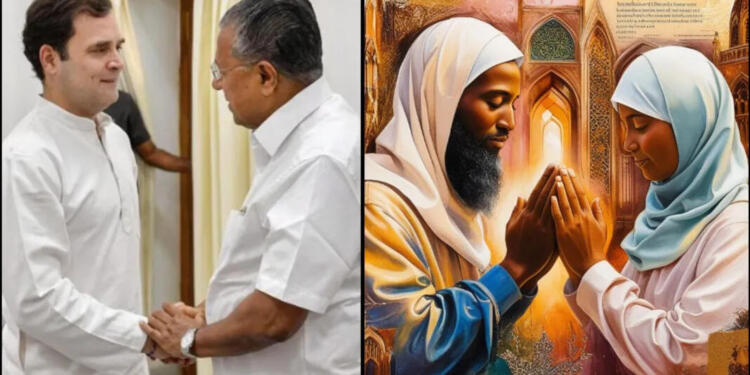In the Kerala Legislative Assembly recently, a figure presented highlights the participation of various communities in state government jobs. Currently, the state has a total of 545,423 government employees working across various departments. Among these employees, 73,774 are Muslims, constituting 13.5% of the total workforce. In contrast, the number of Christian community employees is even higher.
Participation of the Christian Community
The Christian community includes various groups such as Orthodox Christians, Latin Catholics, converted Christians, and Nadar Christians. The number of Orthodox Christian employees is 73,714, while 22,452 employees belong to the Latin Church and work for the state government. Additionally, there are 2,399 converted Christians and 929 Nadar Christians employed by the state government. Thus, the total number of employees from all Christian communities is 99,494, which accounts for 18.25% of the state’s government workforce.
Participation of Other Religious and Social Groups
In addition to the diversity highlighted among Christian, Muslim, Scheduled Caste, Scheduled Tribe, and Brahmin community employees in Kerala’s government, the inclusion of 27 Jain community members underscores the state’s commitment to representation across various religious and social groups. The presence of 1,73,268 Christian and Muslim employees, constituting 31.5% of the government workforce, reflects efforts towards inclusivity. Scheduled Castes contribute significantly with 51,783 employees, alongside 10,513 from Scheduled Tribes, ensuring representation and opportunities for marginalized communities. The Brahmin community, with 7,113 employees, while constituting less than 1.5% of the total workforce.
Major Caste Groups
In the Kerala government, the Ezhava community comprises 1.15 lakh employees, and the Nair community accounts for 1.08 lakh employees, reflecting significant representation in state roles. In contrast, the presence of Yadav and Kshatriya employees is minimal, with only 26 and 28 respectively. Furthermore, 955 employees defy categorization within these groups, underscoring the state’s efforts towards inclusivity while highlighting disparities in representation across various social and caste demographics in government employment.
Criticism of Religious Demographics and Opposition
Muslims and Christians collectively make up about half of Kerala’s population, with Islam and Christianity being followed by 27% and 22% of the populace respectively. This demographic reality underscores the significance of religious representation in governance and public sector employment. Opposition parties have persistently censured the state’s left-wing administration, alleging a lack of diversity in government job allocations. They contend that the government has not adequately upheld religious and social equilibrium in employment practices, further exacerbating concerns about fairness and inclusivity.
Overall Conclusion
This report makes it clear that there is diversity among religious and social groups in various departments of the Kerala government. However, the opposition’s criticism focuses on the need to further balance this diversity. The government faces challenges due to the state’s economic situation and increasing debts, requiring solid steps towards solutions. It is imperative for the government to adopt inclusive policies that provide equal opportunities to all religious and social groups. Additionally, there is a need for robust policies and plans to improve the state’s economic situation, allowing Kerala to emerge as a sustainable and prosperous state.
ALSO READ: Kerala is witnessing several tragic cases of Brain Eating Amoeba

























